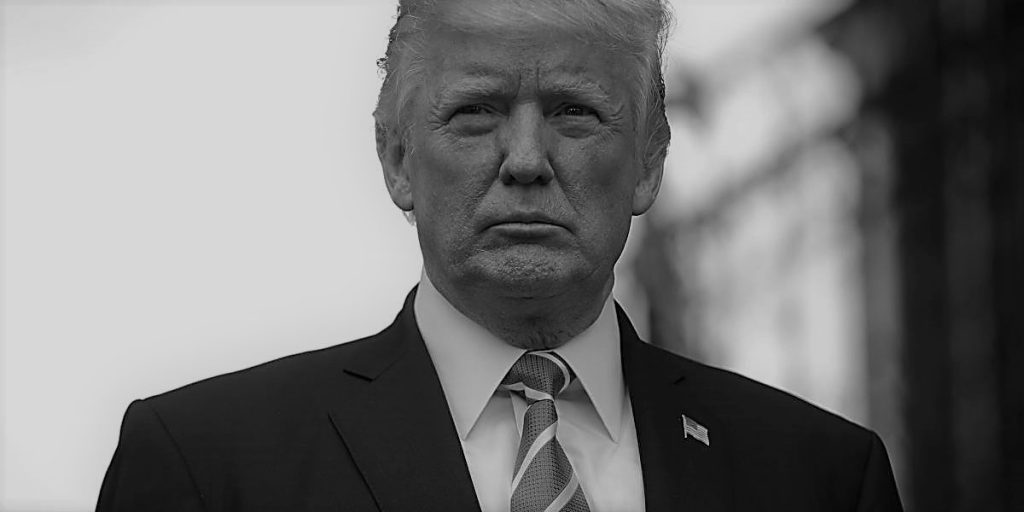President Donald Trump will fly to Puerto Rico today to view the havoc wreaked by Hurricane Maria, giving him the chance to show solidarity with survivors and demonstrate how his government intends to help them recover.
Trump will have to navigate resentment from Puerto Ricans frustrated that they are still struggling with basic necessities two weeks after they were hit by the worst hurricane in 90 years – tensions that were exacerbated when Trump berated critics of his government’s response.
Trump lashed out at San Juan Mayor Carmen Yulin Cruz for “poor leadership” on the weekend after she criticized the federal response. He said some people on the island “want everything to be done for them.”
The White House invited Cruz to participate in Trump’s visit, though it was not immediately clear whether she had accepted.
The economy of the U.S. territory, home to 3.4 million people, was already in recession. Its government filed for bankruptcy in May. The storm wiped out the power grid, and less than half of residents have running water.
Two weeks on, it is still difficult for residents to get a cell phone signal or find fuel for their generators or cars. About 88 percent of the cellphone sites are still out of service.
Valentine Navarro, 26, a salesman in San Juan, shrugged off Trump’s trip as a public relations exercise.
“I think he’s coming here because of pressure, as a photo-op, but I don’t think he’s going to help more than he has already done – and that’s not much,” Navarro said.
Puerto Ricans were often relying on each to share resources and information about which gas stations had fuel or where you could be lucky enough to find a phone carrier with a working cell site.
Angel Negroni, 72, of Juana Matos was trading his neighborhood’s restored municipal water for ice made by a friend’s generator-powered freezer.
Conditions on the island were slowing improving, he said.
“It’s better now,” said Negroni, while standing on his covered porch, cooking fish in a propane-powered camping stove. “We’re OK.”
TRUMP TO ASK CONGRESS FOR $13 BILLION
Trump got high marks for his handling of Hurricane Harvey in Texas and Hurricane Irma in Florida and the Caribbean.
Caught off guard by the severity of Hurricane Maria’s damage to the U.S. island territory, Trump did not focus on the storm for days, instead launching a barrage of tweets over his view that National Football League players should be required to stand during the U.S. national anthem.
A previous Republican president, George W. Bush, faced widespread criticism for his administration’s initial handling of Hurricane Katrina, which killed some 1,800 people in and around New Orleans in 2005.
Images of Trump standing together with mayors, the governor and federal officials would go a long way toward showing Americans the White House is addressing the hurricane damage, said retired Coast Guard Admiral Thad Allen.
Allen, who led the federal response to Hurricane Katrina and the Gulf oil spill, said the presidential visit will provide the chance to communicate that Americans care about the disaster on the isolated island territory.
But he warned against rhetoric that downplayed the challenges ahead or overstated accomplishments.
“Piling superlatives on work that is yet to be completed is not helpful,” Allen said in an interview.
“What you need is transparent, credible, open communication with the American people.”
Trump should offer specifics to Puerto Ricans about the path forward to give people hope so they can begin planning how to rebuild, said Lars Anderson, who was a senior Federal Emergency Management Agency official in Democratic President Barack Obama’s administration.
“He needs to talk about what exactly does his administration plan to do: how are they going to rebuild Puerto Rico? How are they going to deal with the fact that there are parts of Puerto Rico that aren’t going to get power for six months?” said Anderson, who now runs a crisis communications firm called BlueDot Strategies.
Trump’s administration is preparing to ask Congress for $13 billion in aid for Puerto Rico and other areas hit by natural disasters, congressional sources said.
But that money will only go so far. The island’s recovery will likely cost more than $30 billion.
“I don’t see how, without significant federal support, that you don’t find a situation where hundreds of thousands of people leave, and it could potentially be debilitating for years to Puerto Rico,” said Jason Miller, who had led efforts to address the crisis at the National Economic Council during the Obama administration.






